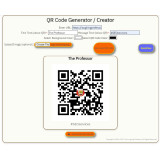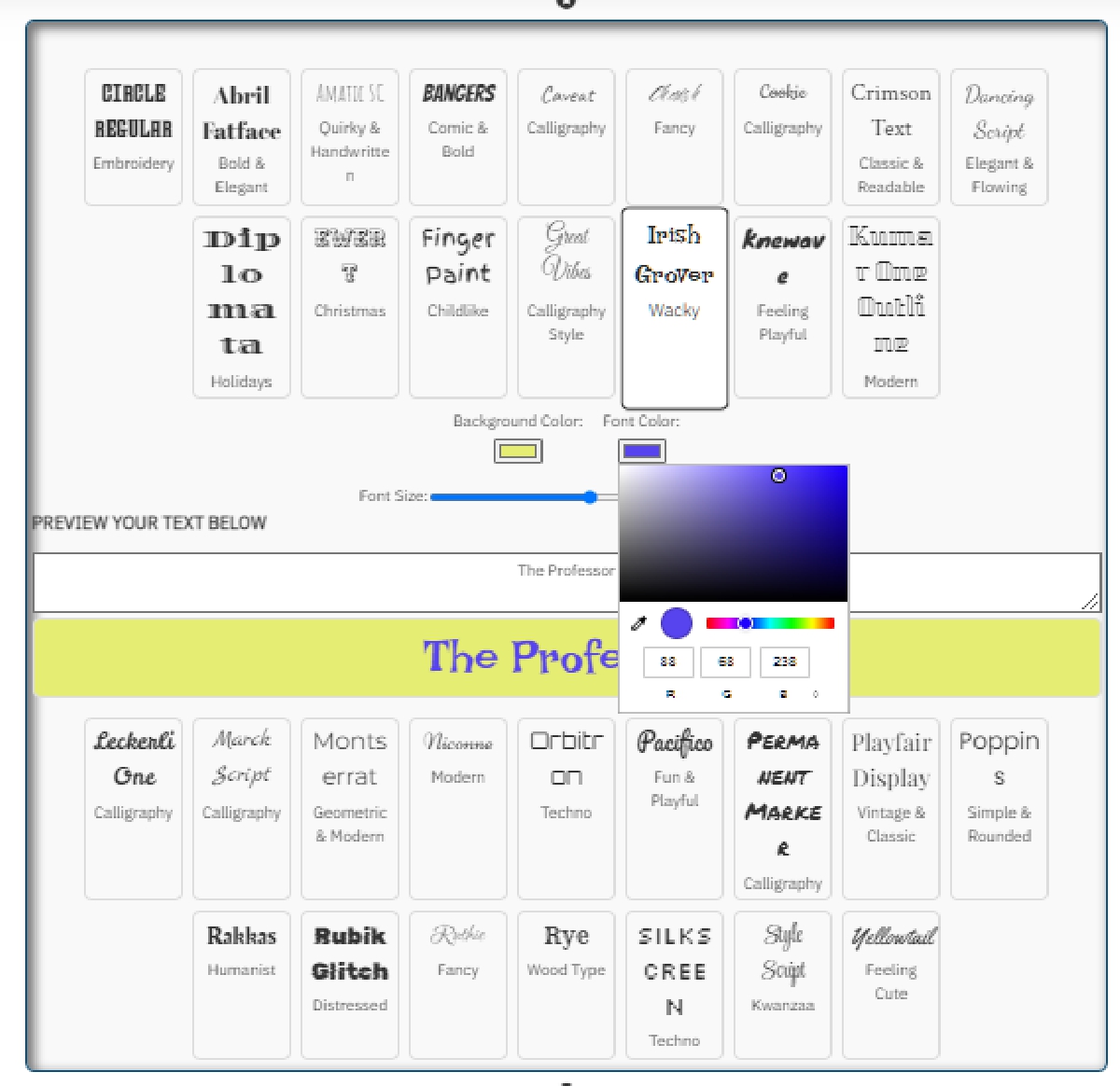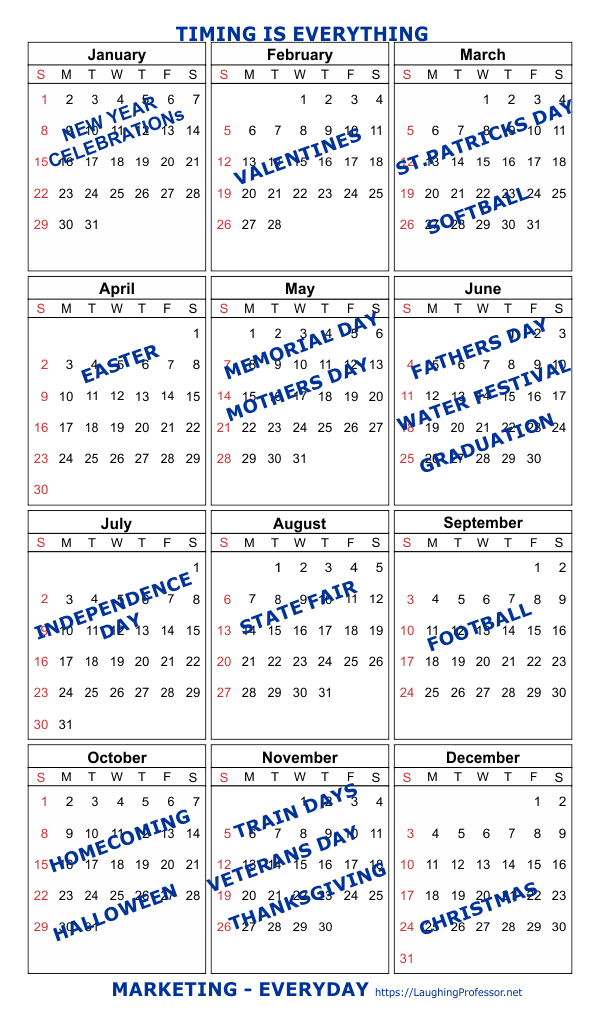
Planning marketing campaigns for events throughout the year requires a structured approach to ensure timely execution and maximum impact. Here's an overview of what’s involved and the typical timeline for planning:
1. Annual Planning
- Initial Planning (3-6 months before the start of the year):
- Research & Strategy Development:
- Analyze previous year’s performance.
- Identify target audience.
- Set goals and KPIs.
- Budget Allocation:
- Allocate budget for each event.
- Content Calendar Creation:
- Create a content calendar outlining major events, campaigns, and key dates.
- Research & Strategy Development:
2. Event-Specific Planning
For each event, specific planning steps should be taken well in advance. Below is a general timeline and key tasks for various types of events:
Major Holidays and Seasonal Events
New Year’s Day (January 1)
- Planning Start: October
- Tasks:
- Design festive graphics and messages.
- Plan and schedule social media posts.
- Prepare email campaigns offering new year promotions.
- Set up holiday-themed website banners.
Valentine’s Day (February 14)
- Planning Start: November
- Tasks:
- Develop romantic and gift-centric content.
- Create special product bundles or promotions.
- Schedule social media and email campaigns.
- Update website with Valentine’s Day theme.
Easter (Variable Date)
- Planning Start: January
- Tasks:
- Design Easter-themed visuals and content.
- Plan promotions and activities.
- Schedule social media posts and email campaigns.
- Prepare website updates for Easter sales.
Mother’s Day (Second Sunday in May)
- Planning Start: February
- Tasks:
- Develop heartfelt content and gift ideas.
- Plan promotions and special offers.
- Schedule social media posts and email campaigns.
- Update website with Mother’s Day theme.
Summer Events (June-August)
- Planning Start: March
- Tasks:
- Develop summer-themed content.
- Plan and schedule promotions for summer sales.
- Schedule social media posts and email campaigns.
- Update website with summer-themed graphics.
Back to School (August-September)
- Planning Start: May
- Tasks:
- Develop back-to-school content and promotions.
- Plan and schedule social media posts and email campaigns.
- Update website with back-to-school themes.
Halloween (October 31)
- Planning Start: July
- Tasks:
- Create spooky-themed content and promotions.
- Plan and schedule social media posts and email campaigns.
- Update website with Halloween graphics.
Thanksgiving (Fourth Thursday in November)
- Planning Start: August
- Tasks:
- Develop Thanksgiving-themed content.
- Plan promotions and special offers.
- Schedule social media posts and email campaigns.
- Update website with Thanksgiving theme.
Black Friday & Cyber Monday (Day after Thanksgiving & following Monday)
- Planning Start: July
- Tasks:
- Plan significant discounts and promotions.
- Develop marketing content.
- Schedule social media posts and email campaigns.
- Update website with sale information.
Christmas & Holiday Season (December)
- Planning Start: September
- Tasks:
- Develop holiday-themed content.
- Plan and schedule holiday promotions.
- Schedule social media posts and email campaigns.
- Update website with festive graphics.
3. Ongoing Marketing Activities
Monthly Review & Adjustments:
- Review performance metrics.
- Adjust strategies and campaigns based on analytics.
- Plan content and promotions for the following month.
Weekly Tasks:
- Schedule social media posts.
- Monitor and respond to customer engagement.
- Send email campaigns.
Daily Activities:
- Monitor social media and website traffic.
- Engage with customers on social media.
- Track campaign performance and make real-time adjustments.
4. Tools and Resources
- Project Management Tools:
- Use tools like Trello, Asana, or Monday.com to manage tasks and deadlines.
- Content Creation:
- Utilize graphic design tools like Adobe Creative Suite or Canva.
- Analytics:
- Use Google Analytics, social media insights, and email marketing analytics to track performance.
- Communication:
- Regular team meetings and updates to ensure alignment and collaboration.
Planning and executing marketing for events throughout the year requires strategic foresight, timely execution, and continuous monitoring to ensure campaigns are effective and aligned with business goals.

 29 years of #TheProfessor
29 years of #TheProfessor
 12% rewards for affiliate members
12% rewards for affiliate members
 On-Page SEO Gold Seal
On-Page SEO Gold Seal
Leave a Comment